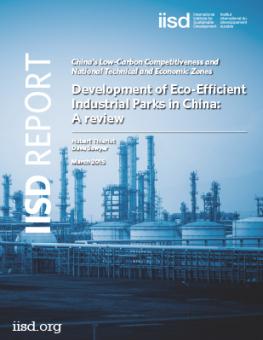
Development of Eco-Efficient Industrial Parks in China: A review
In China, the industrial sector is responsible for approximately 70 per cent of the country’s energy consumption and 72 per cent of its carbon emissions.
Accordingly, many policies and measures have been initiated in order to reduce energy consumption and greenhouse gases emissions. This paper sheds light on the concerted Chinese effort to promote eco-efficient and low-carbon industrial parks. It includes a description and analysis of the three leading Chinese certification programs, their respective governance structures, and their associated procedures and indicator systems. This work concludes with a discussion of the commonalities among these schemes, their potential impacts for low-carbon transition, and the industrial zones’ motivations for and impediments to participating in these initiatives.
Additional downloads
You might also be interested in
Heatwaves to hit China once every 5 years as global extreme weather events multiply, study finds
Record-breaking heatwaves that have scorched North America, Europe and China are set to worsen in future unless the world stops burning fossil fuels, according to a study by the World Weather Attribution (WWA) academic initiative.
Transition from fossil fuels to renewable energy can pose fiscal challenges for India: study
The global transition away from fossil fuels to renewable energy sources could trigger financial challenges for India and major developing countries such as Russia, Brazil and China because of their high dependence on revenues from fossil fuel, according to a study by the International Institute for Sustainable Development (IISD).
IISD Report: Shifting Away from Fossil Fuels Could Lower BRIICS Nations' Revenues
A new report by the International Institute for Sustainable Development (IISD), titled Boom and Bust: The Fiscal Implications of Fossil Fuel Phase-Out in Six Large Emerging Economies, looks at the potential financial ramifications of phasing out fossil fuels in six emerging economies — Brazil, Russia, India, Indonesia, China, and South Africa (BRIICS). They must begin adjusting their fiscal policies to account for declining fossil fuel use or risk a $278 billion revenue gap by 2030.
India, 5 others face fall in fossil fuel revenues
As the global clean energy transition gathers pace, six emerging economies need to start adjusting their fiscal policies now to account for declining fossil fuel use-or risk a $278 billion gap in revenues by 2030, equivalent to the combined total government revenues of Indonesia and S. Africa in 2019, according to a new report by the International Institute for Sustainable Development.